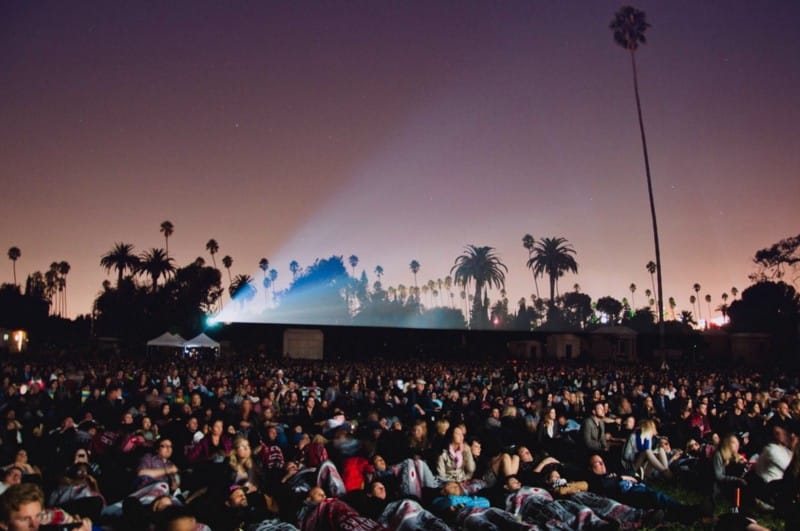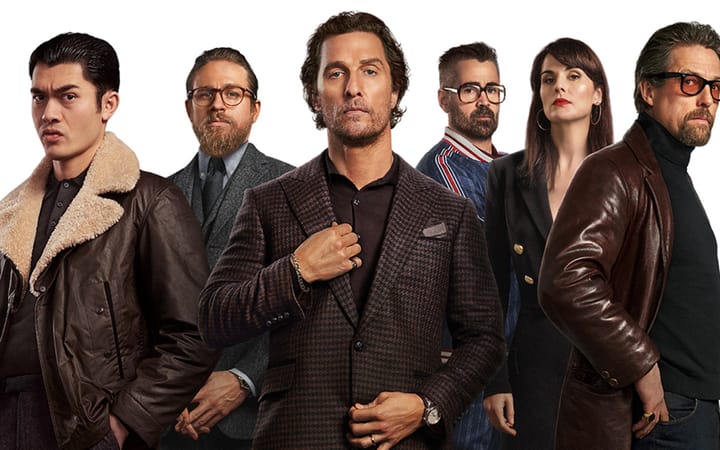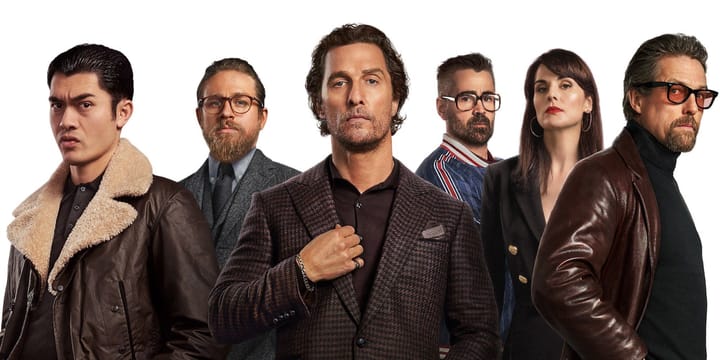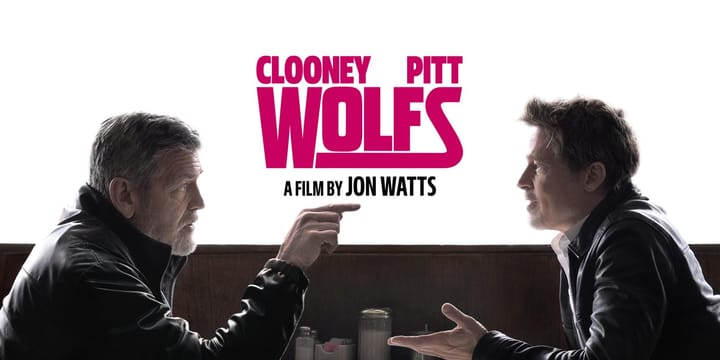How I Stopped Worrying and Learned to Love the Summer Blockbuster

When I grew up I loved big event movies. Jurassic Park, Independence Day, Men in Black, Armageddon, to name a few. These movies were schedule out for specific, high profile dates throughout the year, mainly during the summer.
This meant that between Memorial Day Weekend and Labor Day Weekend was the time for wild, fun, and over the top spectacle movies, with the the 4th of July as the pinnacle weekend. The rest of the year was home for smaller, niche films. Mostly movies that didn’t have a mega budget.
These big budgets were strategically set to return the most investment, by playing during the time when the most people, has the most free time. And with limited dates to meet those metrics, the limited amount of these mega movies there were.
Oh how the times have changed…
Today the calendar is littered with tentpole films, with seemingly more and more franchises every year. This started in the mid to late aughts, when movies were expanding into trilogy territory and inching out past the Memorial Day Weekend window. With each successive year, the expansion creeped further away from this unofficial start of the summer blockbuster season, which lead to a break down of traditional windows of when a movie in this mold was released. July 4th has lost its relevance while many more weekends throughout the year became viable.
All of this coincided with my growth as a film admirer and spectator. I was expanding my tastes, watching more independent films and classics of older eras. But I still enjoyed a big event movie as much as the next person. Something about the communal and collective zeitgeist that only these movies seemed to be able to elicit, always grabbed my inner romantic and imagination of what was possible with film and only film.
From The Matrix, to Pirates of the Caribbean, The Lord of the Rings, X-Men, and the Bourne Series, I loved the spectacle and wizardry of the new technological limits that Hollywood was utilizing to further tell stories in the most immersive way ever.
This era in the 2000s, which was the era of trilogies, felt like the peak of movies. From the amazing leap in both technical capability to the honed, compelling storytelling, these films had an extended but finite journey, giving satisfying conclusions and closure. It was a great ride, thanks for the memories. We’ll still be here for your nostalgia pangs.
Oh what simpler times…
Coming out of the decade of the Aughts, many franchises that the studios had relied on for a decade to drive their box-office were coming to an end, and they were searching for the next trend to keep the profits rolling in.
The lesson they learned from trilogies and sequels is that people like what they know. So they did they next logical step- make more sequels! Who needs a trilogy when you can just keep making more movies with the same characters indefinitely?
They also took (perceived or not) cues of audiences’ preference for the familiar (or the nostalgic) and started to mine existing IP from all mediums- books, TV, theater, toys, apps, theme park rides, and of course, comic books.
If it already existed, it had a chance to become a movie and maybe, if it played its card right, a franchise.
One of these first big cross over properties to get the big screen treatment was the 80’s action-figure (and TV show), Transformers.
When this was announced and leading up to the premiere I was psyched. I was endlessly curious how they would envision a live action movie of shapeshifting robots from space. The possibilities were limitless.
@#&! was I disappointed. Going in, I had no idea what a Michael Bay film was or what a Michael Bay was about. Leaving, I sure as shit knew now. And I didn’t like it.
What was worse, is that this film started a transition into a new type of big budget event movie- CGI pandemonium. Or in other words, all style, no story. It’s not that previous blockbusters are layered like an onion or didn’t ask for large forgiveness in logic, but they had an understanding of themselves and a great sense of fun. This wasn’t fun to me. It was a live action, animation hybrid computer generated orgy fest.
But so continued the march of this style of movies in conceiving all sorts of existing IP for the big screen. Battleship, The Lego Movie, Ghostbusters, Pixels are a few of the masterpieces created during this time. And as stated previously, sequels and remakes continued unabated, almost quadrupling in speed, either for marketing purposes or legal reasons to hold onto content rights. This all adds up to a dizzying amount of high profile, big budget, repurposed content.
As noted in this New York Times article, studios, since the writer’s strike in 2009, have been reluctant to make bets with an unknown outcome. They wanted to reduce the risk by green lighting projects that have a built in audience. This means many properties that are non-traditional, were being tapped to be made into movies, even if the characters or story are not compelling or translate well. For every gem like The Lego Movie, there were a dozen Battleships. The transition to this model was rough, to say the least.
Another effect of this glut of IP movies, was the lessening of ‘event’ movies. There was so much coming out that seemed like a cash grab, I became cynical, jaded, and put off by a lot of what was in theaters, which was mostly filled with actors on green screen, but this feel was especially directed towards the Marvel Cinematic Universe.
While impressed initially with the scope and scale of their intentions of creating a connected story line through an expanding diversity of movies, individually they feel flat for me, all became the worst of themselves — bland, low stakes, sameness that serves to promote the next. (With exception made to Guardians of the Galaxy).
Then the DCU happened. Seeing the success of Marvel, DC was eager to replicate their own connected universe, with their signature style. I was pumped for Man of Steel, being a Superman fan, along with the attachments of the director, writer, producers, and the showing of a great trailer. It had a pedigree and a vision.
Well shame on me, fooled again. Walking out of there I felt the same way I did about Transformers, but worse. What did I just watch? Everything was terrible. It didn’t come anywhere near to measure up to what I was expecting or hoping for. It was tee’d up for something different, original, great. But it was more of the same.
It felt like no one cared anymore. It felt like committees of people whittled down everything to a dull edge. Chasing the lowest common denominator like it’s a blue beam shooting into the sky.
For every The Lego Movie, we get Angry Birds, The Emoji Movie, and Pixels.
For every Guardians of the Galaxy we get Thor 2, The Justice League, and Jurassic World.
It was a difficult time and I refused to see them or at best would be apathetic about them, only catching them on streaming. I climbed up a very tall horse, perched there solidly as the arbiter of good and bad.
Around this time I discovered series on Youtube that dissected everything wrong with a movie in a few minutes. It had a quick paced and elitist tone that fit perfectly with my sensibility at the time. They started with current blockbuster releases, showing all the sins a movie was committing. They especially skewered movies from the MCU, which was sycophantic music to my ears, as I couldn’t understand why people loved them so much and didn’t see all the flaws like I did. Finally I was vindicated.
And what is more important than that in our modern times?
Over time their popularity grew, as did the types of films they digested under their snark knife. This was great. At first. Then they started to creep into older classics and personal favorites of mine. I went with it, how bad could it be?
Well it was brutal.
The sharp cynical knife slashing and dashing through all my beloved movies. Any loop hole, any gap, any small thread that could be pulled, they yanked hard. Where benefits of the a doubt or creative license were cast as sins, fine movies that have stood the test of time were being burnt to the ground in an instant. All in the name of cheap shots for cheap clicks.
Through watching these videos over, my inner critic honed their point of view of movies, where all I functionally could do watching movies was spot minor flaws and project deep head cannon on intentions and explanations. It became exhausting. It took the fun out of movies.
This was the turning point for me. If movies weren’t fun or engaging, what was the point of watching them? Why do anything at all if all you do is look for flaws and criticize? Maybe look for the good, forgive the small flaws, and seek out a moving experience or a good time.
And that’s what I did. I stopped watching those videos and started giving everything a chance. I give movies leeway to allow it to get where it intends to go. I over look lapses in logic. I gave into silliness. I allowed the movie, and myself, to have fun.
And you know what happened, The Fast and the Furious became one of my favorite franchises and Avengers: Infinity War became one of my favorite movies of all time.
This is not to say that I don’t have opinions about movies, that I don’t criticize poor choices or confusing decisions, or that I don’t seek out and hope to find thoughtfully crafted movies. I do all of those things. But I also don’t want my movie viewing experience to be a zero sum game, where one perfection is acceptable.
There is no such thing. Even the most perfect seeming films, have their imperfections. So holding up films that don’t aim for high-minded cinematic impecability to begin with, is a losing scenario. It takes the fun out of movies.
So my advice, for the best way to have fun at the movies (and life), is to stop worrying and learn to love the summer (year-round?) blockbuster.





Comments ()